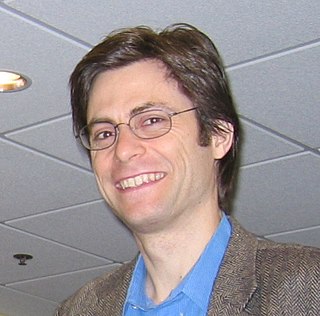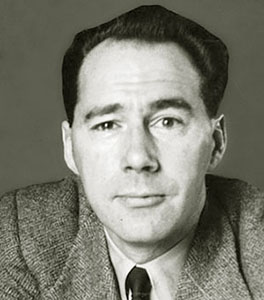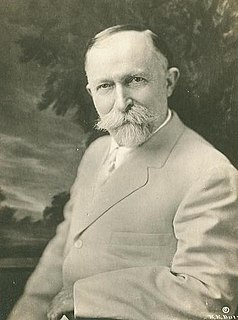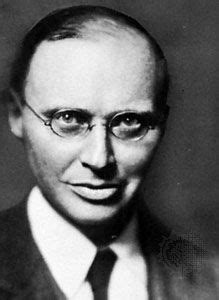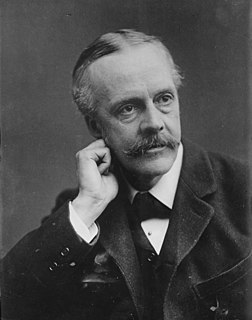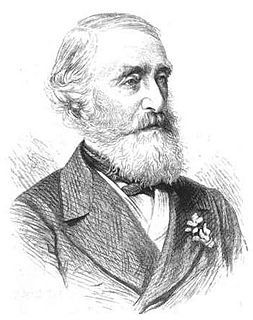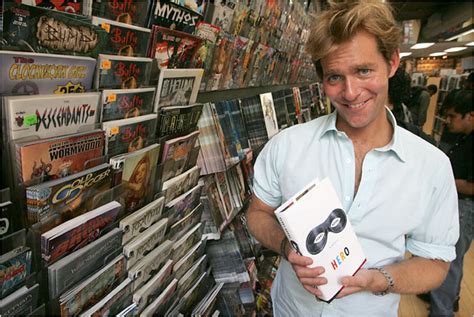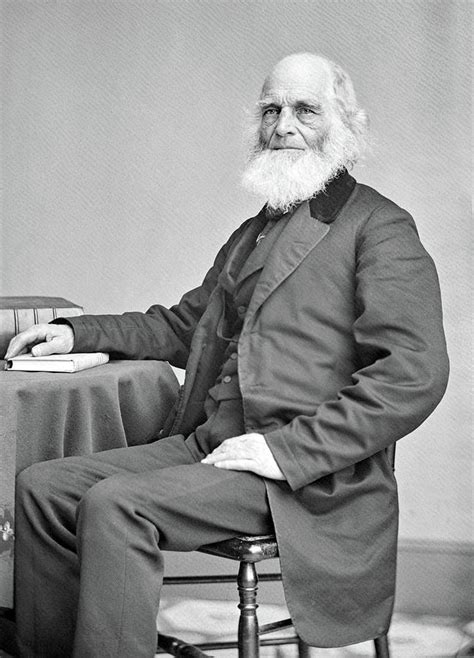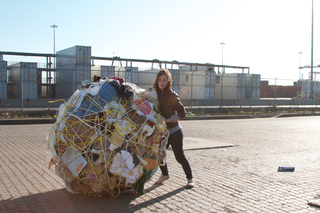Top 1114 Brief Quotes & Sayings - Page 18
Explore popular Brief quotes.
Last updated on April 19, 2025.
This brief century of ours is arguably the most significant one in the history of our universe. We'll have the technology either to self-destruct, or [to] seed our cosmos with life. The situation is so unstable that I doubt we can dwell at this fork in the road for more than another hundred years. But if we end up going the life route instead of the death route, then in a distant future our cosmos will be teaming with life, all of which can be traced back to what we do-here and now. I don't know how we'll be thought of, but I'm sure that we won't be remembered as insignificant.
And again there are no words. Words exist that can, used by a poet, achieve a dim monochrome of the body's love, but beyond that they fail clumsily. My love flowed out to her, hers back to me. Mine stroked and soothed. Hers caressed. The distance - and the difference - between us dwindled and vanished. We could meet, mingle, and blend. Neither one of us existed any more; for a time there was a single being that was both. There was escape from the solitary cell; a brief symbiosis, sharing all the word.
This mortal probation is a brief period-just a short span, linking the eternity of the past with the eternity of the future. Yet it was to be a period of tremendous importance. It is, in fact, the most vital period of our entire eternal existence. In this mortal state we come face to face with innumerable temptations and pressures. Sometimes we come in contact with advocates of wrongdoing, disobedience, and sin. Lucifer is going about tempting those who can be tempted to see if he can lead them astray.
Can't you just thank me and get over it?" "Thank you." I waited, fuming and expectant. "You're not going to let it go, are you?" "No." "In that case . . . I hope you enjoy disappointment." We scowled at each other in silence. I was the first to speak, trying to keep myself focused. I was in danger of being distracted by his livid, glorious face. It was like trying to stare down a destroying angel. "Why did you even bother?" I asked frigidly. He paused, and for a brief moment his stunning face was unexpectedly vulnerable. "I don't know," he whispered.
A few times in my life I've had moments of absolute clarity, when for a few brief seconds the silence drowns out the noise and I can feel rather than think, and things seem so sharp. And the world seems so fresh as though it had all just come into existence. I can never make these moments last. I cling to them, but like everything, they fade. I have lived my life on these moments. They pull me back to the present, and I realize that everything is exactly the way it was meant to be.
Prayer is a supernal gift of our Father in Heaven to every soul. Think of it: the absolute Supreme Being, the most all-knowing, all-seeing, all-powerful personage, encourages you and me, as insignificant as we are, to converse with Him as our Father. Our supplication can be brief or can occupy all the time needed. It can be an extended expression of love and gratitude or an urgent plea for help. He has created numberless cosmos and populated them with worlds, yet you and I can talk with Him personally, and He will ever answer.
The soul of wit may become the very body of untruth. However elegant and memorable, brevity can never, in the nature of things, do justice to all the facts of a complex situations. On such a theme one can be brief only by omission and simplification. Omission and simplification help us to understand - but help is, in many cases, to understand the wrong thing; for our comprehension may be only of the abbreviator's neatly formulated notions, not of the vast, ramifying reality from which these notions have been so arbitrarily abstracted.
Blomkvist had indeed had many brief relationships. He knew he was reasonably good-looking, but he had never considered himself exceptionally attractive. But he had often been told that he had something that made women interested in him . . .that he radiated self-confidence and security at the same time, that he had the ability to make women feel at ease. Going to bed with him was not threatening or complicated, but it might be erotically enjoyable. And that, according to Blomkvist, was as it should be.
whats here a cup closed in my true loves hand poisin i see hath been his timeless end. oh churl drunk all and left no friendly drop to help me after. i will kiss thy lips some poisin doth hang on them, to help me die with a restorative. thy lips are warm. yea noise then ill be brief oh happy dagger this is thy sheath. there rust and let me die.
Never give all the heart, for love Will hardly seem worth thinking of To passionate women if it seem Certain, and they never dream That it fades out from kiss to kiss; For everything that's lovely is But a brief, dreamy, kind delight. O Never give the heart outright, For they, for all smooth lips can say, Have given their hearts up to the play. And who could play it well enough If deaf and dumb and blind with love? He that made this knows all the cost, For he gave all his heart and lost.
And when at some future date the high court of history sits in judgment on each of us, recording whether in our brief span of service we fulfilled our responsibilities to the state, our success or failure, in whatever office we hold, will be measured by the answers to four questions: First, were we truly men of courage... Second, were we truly men of judgment... Third, were we truly men of integrity... Finally, were we truly men of dedication?-
When I wake, I have a brief, delicious feeling of happiness that is somehow connected with Peeta. Happiness, of course, is a complete absurdity at this point, since at the rate things are going, I'll be dead in a day. And that's the best-case scenario, if I'm able to eliminate the rest of the field, including myself, and get Peeta crowned as the winner of the Quarter Quell. Still, the sensation's so unexpected and sweet I cling to it, if only for a few moments. Before the gritty sand, the hot sun, and my itching skin demand a return to reality.
We've forgotten much. How to struggle, how to rise to dizzy heights and sink to unparalleled depths. We no longer aspire to anything. Even the finer shades of despair are lost to us. We've ceased to be runners. We plod from structure to conveyance to employment and back again. We live within the boundaries that science has determined for us. The measuring stick is short and sweet. The full gamut of life is a brief, shadowy continuum that runs from gray to more gray. The rainbow is bleached. We hardly know how to doubt anymore. (“The Thing”)
Man alone, during his brief existence on this earth, is free to examine, to know, to criticize, and to create. In this freedom lies his superiority over the forces that pervade his outward life. He is that unique organism in terms of matter and energy, space and time, which is urged to conscious purpose. Reason is his characteristic and indistinguishing principle. But man is only man -- and free -- when he considers himself as a total being in whom the unmediated whole of feeling and thought is not severed and who impugns any form of atomization as artificial, mischievous, and predatory.
I wrote a letter to the magazine [Time magazine] pointing out that [Richard] Corliss's comparison of Christopher Lee's Saruman to Osama Bin Laden, and the vastly outnumbered defenders of Helm's Deep united against the Orcs to the "Coalition of the Willing" fighting the good fight against Muslim hordes, displayed the simplistic, xenophobic, and arrogant worldview that makes the government of the United States feared and mistrusted around the world. The editors claimed they had no space to print my brief letter, which I felt was dishonest and cowardly.
There is in life only one moment and in eternity only one. It is so brief that it is represented by the fleeting of a luminous mote through the thin ray of sunlight - and it is visible but a fraction of a second. The moments that preceded it have been lived, are forgotten and are without value; the moments that have not been lived have no existence and will have no value except in the moment that each shall be lived. While you are asleep you are dead; and whether you stay dead an hour or a billion years the time to you is the same.
Our society values alert, problem-solving consciousness, and it devalues all other states of consciousness. Any kind of consciousness that is not related to the production or consumption of material goods is stigmatized in our society today. Of course we accept drunkenness. We allow people some brief respite from the material grind. A society that subscribes to that model is a society that is going to condemn the states of consciousness that have nothing to do with the alert problem-solving mentality.
I understood how a man who has nothing left in this world may still know bliss, be it only for a brief moment, in the contemplation of his beloved. In a position of utter desolation, when a man cannot express himself in positive action, when his only achievement may consist in enduring his sufferings in the right way - an honorable way - in such a position man can, through loving contemplation of the image he carries of his beloved, achieve fulfillment.
He was making her feel small and absurdly petulant and, worse yet, she suspected he was right. She always suspected he was right. For a brief irrational moment, she wished she could walk away from him. Then she wished, more rationally, that she could love him without needing him. Need gave him power without his trying; need was the choicelessness she often felt around him.
War means fighting. The business of the soldier is to fight. Armies are not called out to dig trenches, to throw up breastworks, to live in camps, but to find the enemy and strike him; to invade his country, and do him all possible damage in the shortest possible time. This will involve great destruction of life and property while it lasts; but such a war will of necessity be of brief continuance, and so would be an economy of life and property in the end.
I had brief glimpses of emotional catharsis while writing. I remember reading something Philip Roth wrote about how he writes every single day, but it's almost as if he has amnesia every morning - he has almost zero confidence that anything will come but he just sits down and plugs away. And at the end of the day it feels like a miracle: "How did I do that?" I had a similar experience where it was just about putting in the hours and being present.
Is beauty a reminder of something we once knew, with poetry one of its vehicles? Does it give us a brief vision of that 'rarely glimpsed bright face behind/ the apparency of things'? Here, I suppose, we ought to try the impossible task of defining poetry. No one definition will do. But I must admit to a liking for the words of Thomas Fuller, who said: 'Poetry is a dangerous honey. I advise thee only to taste it with the Tip of thy finger and not to live upon it. If thou do'st, it will disorder thy Head and give thee dangerous Vertigos.
Change begets change. Nothing propagates so fast. If a man habituated to a narrow circle of cares and pleasures, out of which he seldom travels, step beyond it, though for never so brief a space, his departure from the monotonous scene on which he has been an actor of importance would seem to be the signal for instant confusion. The mine which Time has slowly dug beneath familiar objects is sprung in an instant; and what was rock before, becomes but sand and dust.
A remedy [for masturbation] which is almost always successful in small boys is circumcision, especially when there is any degree of phimosis. The operation should be performed by a surgeon without administering an anaesthetic, as the brief pain attending the operation will have a salutary effect upon the mind, especially if it be connected with the idea of punishment, as it may well be in some cases. The soreness which continues for several weeks interrupts the practice, and if it had not previously become too firmly fixed, it may be forgotten and not resumed.
Kissinger projects a strong impression of a man at home in the world and on top of his brief. But there are a number of occasions when it suits him to pose as a sort of Candide: naive, and ill-prepared for and easily unhorsed by events. No doubt this pose costs him something in point of self-esteem. It is a pose, furthermore, which he often adopts at precisely the time when the record shows him to be knowledgeable, and when knowledge or foreknowledge would also confront him with charges of responsibility or complicity.
It is possible to express the laws of thermodynamics in the form of independent principles , deduced by induction from the facts of observation and experiment, without reference to any hypothesis as to the occult molecular operations with which the sensible phenomena may be conceived to be connected; and that course will be followed in the body of the present treatise. But, in giving a brief historical sketch of the progress of thermodynamics, the progress of the hypothesis of thermic molecular motions cannot be wholly separated from that of the purely inductive theory.
I have this fantasy that the second movie would begin with a brief statement by all of the young actors who had played the children in the first movie, explaining how it had ruined their lives, so we would catch up with Emily Browning drinking heavily in the back of a burlesque bar, and maybe Liam Aiken would be living underneath a bridge, and then instead of the twins who played Sunny, we would just try to find the oldest woman in the world, and get an interview with her sitting in a trailer park.
The brief relief of seeing other people when I leave my room turns into a desperate need to be alone, and then being alone turns into a terrible fear that I will have no friends, I will be alone in this world and in my life. I will eventually be so crazy from this black wave, which seems to be taking over my head with increasing frequency, that one day I will just kill myself, not for any great, thoughtful existential reasons, but because I need immediate relief.
He was too good to be
Where ill men were, and was the best of all
Amongst the rar'st of good ones- sitting sadly
Hearing us praise our loves of Italy
For beauty that made barren the swell'd boast
Of him that best could speak; for feature, laming
The shrine of Venus or straight-pight Minerva,
Postures beyond brief nature; for condition,
A shop of all the qualities that man
Loves woman for; besides that hook of wiving,
Fairness which strikes the eye-
CYMBELINE.
It is possible that our race may be an accident, in a meaningless universe, living its brief life uncared for, on this dark, cooling star: but even so - and all the more - what marvelous creatures we are! What fairy story, what tale from the Arabian Nights of the jinns, is a hundredth part as wonderful as this true fairy story of simians! It is so much more heartening, too, than the tales we invent. A universe capable of giving birth to many such accidents is - blind or not - a good world to live in, a promising universe. . . . We once thought we lived on God's footstool, it may be a throne.
I arrived in San Francisco in January 1951. After the Second World War, the population was so uprooted. Soldiers came back home for brief periods and took off again. So the population was very fluid, and suddenly it was as if the continent tilted west. The whole population slid west. It took 10 years for America to coalesce into a new culture. And the new culture happened in San Francisco, not New York.
The closest Western Civilization has come to unity since the Congress of Vienna in 1815 was the week the Sgt. Pepper album was released.. . . . At the time I happened to be driving across country on Interstate 80. In each city where I stopped for gas or food — Laramie, Ogallala, Moline, South Bend — the melodies wafted in from some far-off transistor radio or portable hi-fi. It was the most amazing thing I’ve ever heard. For a brief while the irreparable fragmented consciousness of the West was unified, at least in the minds of the young.
I notice that you use plain, simple language, short words and brief sentences. That is the way to write English?it is the modern way and the best way. Stick to it; don't let fluff and flowers and verbosity creep in. When you catch an adjective, kill it. No, I don't mean utterly, but kill most of them?then the rest will be valuable. They weaken when they are close together. They give strength when they are wide apart. An adjective habit, or a wordy, diffuse, flowery habit, once fastened upon a person, is as hard to get rid of as any other vice.
I have, for my own projected works and ideas, only the silliest and dewiest of hopes; no matter what, I am romantic enough or sentimental enough to wish to contribute something to life's fabric, to the world's beauty.... [S]imply to live does not justify existence, for life is a mere gesture on the surface of the earth, and death a return to that from which we had never been wholly separated; but oh to leave a trace, no matter how faint, of that brief gesture! For someone, some day, may find it beautiful!
Her blog was doing well, with thousands of unique visitors each month, and she was earning good speaking fees, and she had a fellowship at Princeton and a relationship with Blaine - "You are the absolute love of my life," he'd written in her last birthday card - and yet there was cement in her soul. It had been there for a while, an early morning disease of fatigue, shapeless desires, brief imaginary glints of other lives she could be living, that over the months melded into a piercing homesickness.
The cat Horus shot out from under the table and headed for the door, his ears flattened and his tail straight out. There he encountered Abdullah, who had been waiting for us on the verandah and who had, I supposed, been alarmed by Emerson's shouts and hurried to discover what disaster had prompted them. The cat got entangled in Abdullah's skirts and a brief interval of staggering (by Abdullah), scratching (by Horus) and swearing (by both parties) ensued before Horus freed himself and departed.
Our time on earth and our energy, intelligence, opportunities, relationships, and resources are all gifts from God that he has entrusted to our care and management. We are stewards of whatever God gives us. This concept of stewardship begins with the recognition that God is the owner of everything and everyone on earth. ... We never actually own anything during our brief stay on earth. God just loans the earth to us while we're here. It was God's property before you arrived, and God will loan it to someone else after you die.
Imperishable moments and immortal deeds, death itself and love stronger than death, will be as though they had never been. The energies of our system will decay, the glory of the sun will be dimmed and the earth tideless and inert, will no longer tolerate the race which has for the moment disturbed its solitude. Man will go down into the pit and all his thoughts will perish. The uneasy consciousness, which in this obscure corner has for a brief space broken the contented silence of the universe, will be at rest.
There are times in history when the dark drums of God can barely be heard amid the noises of this world. Then it is only in moments of silence, which are rare and brief, that their beat can be faintly discerned. There are other times. These are the times when God is heard in rolling thunder, when the earth trembles and the treetops bend under the force of [God’s] voice. It is not given to men [and women] to make God speak. It is only given to them to live and to think in such a way that, if God’s thunder should come, they will not have stopped their ears.
Events are the ephemera of history; they pass across its stage like fireflies, hardly glimpsed before they settle back into darkness and as often as not into oblivion. Every event, however brief, has to be sure a contribution to make, lights up some dark corner or even some wide vista of history. Nor is it only political history which benefits most, for every historical landscape - political, economic, social, even geographical - is illumined by the intermittent flare of the event.
Everything that has ever lived, plant or animal, dates its beginning from the same primordial twitch. At some point in an unimaginably distant past, some little bag of chemicals fidgeted to life. It absorbed some nutrients, gently pulsed, had a brief existence. This much may have happened many times before. But this ancestral packet did something additional and extraordinary. It cleaved itself and produced an heir. A tiny bundle of genetic material passed from one living entity to another, and has never stopped moving since. It was the moment of creation for us all.
Even those who identify themselves as libertarians follow an overtly anti-rationalist philosophy, as even a brief acquaintance with the work of Friedrich Hayek should make clear. The argument against reason in this literature is straightforward: it is impossible for any individual to acquire enough reliable information to make a rational decision, any actions founded on rational thought will therefore be delusional, any attempts at reason should therefore regarded as dangerous, and all action should instead be guided by tradition.
It is very remarkable that while the words Eternal, Eternity, Forever, are constantly in our mouths, and applied without hesitation, we yet experience considerable difficulty in contemplating any definite term which bears a very large proportion to the brief cycles of our petty chronicles. There are many minds that would not for an instant doubt the God of Nature to have existed from all Eternity, and would yet reject as preposterous the idea of going back a million of years in the History of His Works. Yet what is a million, or a million million, of solar revolutions to an Eternity?
We greatly want a brief word to express the science of improving stock, which is by no means confined to questions of judicious mating, but which, especially in the case of man, takes cognizance of all influences that tend in however remote a degree to give to the more suitable races or strains of blood a better chance of prevailing speedily over the less suitable than they otherwise would have had. The word eugenics would sufficiently express the idea.
This is my long-run forecast in brief: The material conditions of life will continue to get better for most people, in most countries, most of the time, indefinitely. Within a century or two, all nations and most of humanity will be at or above today's Western living standards. I also speculate, however, that many people will continue to think and say that the conditions of life are getting worse.
We don't get a chance to do that many things, and every one should be really excellent. Because this is our life. Life is brief, and then you die, you know? So this is what we've chosen to do with our life. We could be sitting in a monastery somewhere in Japan. We could be out sailing. Some of the team could be playing golf. They could be running other companies. And we've all chosen to do this with our lives. So it better be damn good. It better be worth it. And we think it is.
Near the top of the market, investors are extraordinarily optimistic because they've seen mostly higher prices for a year or two. The sell-offs witnessed during that span were usually brief. Even when they were severe, the market bounced back quickly and always rose to loftier levels. At the top, optimism is king, speculation is running wild, stocks carry high price/earnings ratios, and liquidity has evaporated. A small rise in interest rates can easily be the catalyst for triggering a bear market at that point.
Listen to the Exhortation of the Dawn! Look to this Day! For it is Life, the very Life of Life. In its brief course lie all the Verities and Realities of your Existence. The Bliss of Growth, The Glory of Action, The Splendor of Beauty; For Yesterday is but a Dream, And To-morrow is only a Vision; But To-day well lived makes Every Yesterday a Dream of Happiness, And every Tomorrow a Vision of Hope. Look well therefore to this Day! Such is the Salutation of the Dawn!
The scarcest resource these days is reason. What's certainly striking about American culture today is the great hostility toward science and the decline of respect for rational scientific thinking. People seem to think that we are ruled by the scientific method and that we overvalue reason. If there was ever a period when we overvalued reason, I think that it was probably extremely brief. What I see now is a great deal of superstition, as much superstition as there has ever been. There are probably more people who believe in guardian angels than who understand the law of gravity.
I think we all mistake certain things for happiness. I think we mistake comfort for happiness and we mistake pleasure for happiness, and entertainment for happiness, when really these are just things we use as proxies for our happiness. We use them to cheer us up or try and achieve brief happiness, when really happiness is something much more profound and long lasting and exists within us.
Man has existed for about a million years. He has possessed writing for about 6,000 years, agriculture somewhat longer, but perhaps not much longer. Science, as a dominant factor in determining the belief of educated men, has existed for about 300 years; as a source of economic technique, for about 150 years. In this brief period it has proved itself an incredibly powerful revolutionary force. When we consider how recently it has risen to power, we find ourselves forced to believe that we are at the very beginning of its work in transforming human life.
I saw Dad's eyes widen just a fraction when he heard my voice catch. He glanced at me but quickly turned away. He didn't want me to see his reaction, but I did, and I'll never forget it. In that brief glimpse, I could see what he was thinking behind that fixed stare. There would be no grandkids, there would be no more Creed family bloodline, nothing else to look forward to. From that point on I'd become the last, most devastating disappointment in what he thought his life had added up to--one overwhelming failure.
The saddest symptom about many so-called Christians is the utter absence of anything like conflict and fight against spiritual apathy in their Christianity. They eat, they drink, they dress, they work, they amuse themselves, they get money, they spend money, they go through a brief round of formal religious services once or twice every week. But of the great spiritual warfare - its watchings and strugglings, its agonies and anxieties, its battles and contests - of all things they appear to know nothing at all. Let us take care that this case is not our own.
"Each moment you fight is a gift to those in this cavern. Each second we fight is a second longer that thousands of people can draw breath. Each stroke of the sword, each koloss felled, each breath earned is another victory! It is a person protected for a moment longer, a life extended, an enemy frustrated!" There was a brief pause. "In the end they shall kill us"... "But first, they shall fear us!"
Yet at the last Beren was slain by the Wolf that came from the gates of Angband, and he died in the arms of Tinúviel. But she chose mortality, and to die from the world, so that she might follow him; and it is sung that they met again beyond the Sundering Seas, and after a brief time walking alive once more in the green woods, together they passed, long ago, beyond the confines of this world. So it is that Lúthien Tinúviel alone of the Elf-kindred has died indeed and left the world, and they have lost her whom they most loved.
Ye winds ye unseen currents of the air,
Softly ye played a few brief hours ago;
Ye bore the murmuring bee; ye tossed the air
O'er maiden cheeks, that took a fresher glow;
Ye rolled the round white cloud through depths of blue;
Ye shook from shaded flowers the lingering dew;
Before you the catalpa's blossoms flew,
Light blossoms, dropping on the grass like snow.
I wanted to make a site where I wasn't mailing physical things to people, but I was still giving people things, and I would have this relationship with that person, and if that person was interested in the object, they would have to email me and I would send that object digitally to them. So, I wanted the relationship with that person, however brief, and I wanted to spread the digital record of the things I have.
These are the saddest of possible words, Tinker-to-Evers-to-Chance. Trio of Bear Cubs fleeter than birds, Tinker-to-Evers-to-Chance. Ruthlessly pricking our gonfalon bubble, Making a Giant hit into a double, Words that are weighty with nothing but trouble, Tinker-to-Evers-to-Chance. This brief poem, immortalized the Chicago Cubs' double-play combination: Shortstop Joe Tinker, second baseman Johnny Evers, and first baseman Frank Chance.
After sleeping through a hundred million centuries we have finally opened our eyes on a sumptuous planet, sparkling with color, bountiful with life. Within decades we must close our eyes again. Isn’t it a noble, an enlightened way of spending our brief time in the sun, to work at understanding the universe and how we have come to wake up in it? This is how I answer when I am asked—as I am surprisingly often—why I bother to get up in the mornings.
I have one final hope, If I get double sixes, maybe he will change his mind, come back to me. As if to cast a magic spell, I blow on the dice just as Dex did...Just as it happened with our first roll, one die lands before its mate. On a six! I hold my breath. For a brief second, I see a mess of dots, and think I have boxcars again. I kneel, staring at the second die. It is onle a five. I have rolled an eleven, It is as if someone is mocking me, saying, Close, but no dice.
